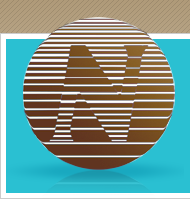Final CFP: Seventh International Workshop on Computational Models of Narrative
Wednesday, March 9th, 2016—FINAL CALL FOR PAPERS AND EXTENDED DEADLINE—
Seventh International Workshop on Computational Models of Narrative (CMN’16)
Advancing the Science of Narrative
Special Focus: Computational Narrative and the Humanities
a satellite workshop of:
Digital Humanities 2016 (DH2016)
11-13 July 2016
Kraków, Poland
http://narrative.csail.mit.edu/cmn16/
—IMPORTANT DATES—
15 March 2016. Submission deadline (EXTENDED).
11 April 2016. Notification of acceptance.
16 May 2016. Final Camera Ready Versions Due.
11-13 July 2016. CMN’16.
11-16 July 2016. DH2016.
—WORKSHOP AIMS—
The workshop series, Computational Models of Narrative (CMN) is dedicated to advancing the computationally-grounded scientific study of narrative. Now in its seventh iteration, the workshop has a tradition of crossing academic borders and bringing together researchers from different disciplines on a common object of study. Narrative provides a model for organizing and communicating experience, knowledge, and culture. Investigations of narrative operations in textual, aural, and visual media have been systematically pursued in the humanities since before the early structural linguistics and folklorist inspired work of the Russian Formalists, and in the computing sciences since before the early cognitive science inspired work on scripts and frames. Research continues on computational approaches across the humanities and sciences. In order to appreciate the various domains and approaches connected to the computationally enabled study of narratives and narrative theory, it is becoming increasingly clear that research in this area requires engagement from many communities of interest. Peer-reviewed full proceedings from CMN’13, ‘14, and ‘15 are each available in the OpenAccess Series in Informatics (OASIcs) published by Schloss Dagstuhl; peer-reviewed proceedings from CMN’11 and CMN’12 were published by AAAI and LREC, respectively.
—SPECIAL FOCUS: COMPUTATIONAL NARRATIVE AND THE HUMANITIES—
This inter-disciplinary workshop will be an appropriate venue for papers addressing fundamental topics and questions regarding narrative. Papers should be relevant to the computational modeling, and scientific or humanistic understanding of narrative. The workshop will have a special focus on how the computational modeling, analysis, or generation of narrative has affected approaches in the humanities for studying and generating narrative in or across textual, aural, or visual media. Possible themes could connect to the representation of narrative, connections between cognition and narrative or knowledge representation and narrative, the use of heuristics to handle complexity, incorporation of insights about human thinking, the use of narrative to organize information in the humanities, the relationship between top-down and bottom-up approaches for narrative understanding, or how narrative is seen to function differently depending upon the medium. Regardless of its topic, reported work should provide insight of use to the scientific understanding or computational modeling of narratives. Discussing technological applications or motivations is not prohibited, but is not required. We accept both finished research and more tentative exploratory work.
We invite and encourage submissions either as full papers or position papers, through the workshop’s EasyChair website:
https://easychair.org/conferences/?conf=cmn16
We also invite you to submit an abstract soon so that we can gauge the number of submissions we can expect. (Submitting an abstract is possible without submitting the full paper at the same time.) Full papers should contain original research and have to fit within 16 pages; position papers can report on work-in-progress, research plans or projects and have to fit within four pages plus one page of references.
Illustrative Topics and Questions
– How can computational narratives be studied from a humanities point of view?
– Are generative models of narrative texts, movies or video games possible, desirable, and useful?
– What comprises the set of possible narrative arcs? Is there such a set? How many possible story lines are there?
– Is narrative structure universal, or are there systematic differences in narratives from different cultures?
– How are narratives affected by the media used to convey them?
– What aspects of cross-linguistic work has narrative research neglected?
– What opportunities are there for narrative analysis across languages?
– What makes narrative different from a list of events or facts?
– How do conceptions and models of spatiality or temporality influence narrative and narrative theory?
– What are the details of the relationship between narrative and language, image, or sound?
– How is narrative knowledge captured and represented?
– How are narratives indexed and retrieved? Is there a universal scheme for encoding episodic information?
– What shared resources are required for the computational study of narrative? What should a “Story Bank” contain?
– What shared resources and tools are available, or how can already-extant resources be adapted to the study of narrative?
– What are appropriate formal or computational representations for narrative?
– How should we evaluate computational and formal models of narrative?
– Can narrative be subsumed by current models of higher-level cognition, or does it require new approaches?
– How do narratives mediate our cognitive experiences, or affect our cognitive abilities?
– How can narrative systems be applied to problem-solving?
– How far are we from a theory of narrative adaptation across media?
—ORGANIZING COMMITTEE—
– Antonio Lieto (University of Turin, Italy)
– Ben Miller (Georgia State University, USA)
– Rémi Ronfard (Inria, LJK, University of Grenoble, France)
– Stephen Ware (University of New Orleans, USA)
– Mark A. Finlayson (Florida International University, USA)
—Keynote Speaker—
– John Bateman, University of Bremen, Germany
—PROGRAM COMMITTEE—
David Elson, Columbia University & Google
Floris Bex, Utrecht University
Rossana Damiano, University of Turin
Kerstin Dautenhahn, University of Hertfordshire
Pablo Gervás, Complutense University of Madrid
Andrew Gordon, ICT
Livia Polanyi, LDM Associates
Marie-Laure Ryan, University of Colorado Boulder
Tim Tangherlini, UCLA
Mariet Theune, University of Twente
Atif Waraich, Manchester Metropolitan University
Mehul Bhatt, University of Bremen
Emmett Tomai, University of Texas-Pan American
Neil Cohn, UCSD
Inderjeet Mani, Yahoo Labs
Loizos Michael, Open University of Cyprus
Chris Meister, Hamburg University
Fritz Breithaupt, Indiana University
Benedikt Löwe, Universität Hamburg

